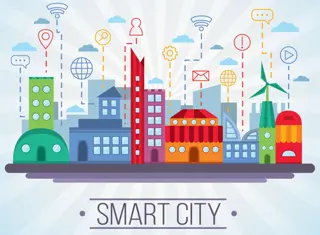Ranchi Smart City Project Moves to Final Phase: Changing Urban Infrastructure

As India’s Smart Cities Mission stretches until March 2025, Ranchi is speeding up its change to a model of sustainable urban living. The last phase of the project focuses on smart traffic management, smart water metering, and solar-powered street lighting to boost the quality of life for residents.
Final Phase Execution
The Ranchi Smart City Corporation Limited (RSCCL) has made solar energy integration and AI-driven governance top priorities. They are also ending less used programs like the chartered bicycle scheme. To make the administration more efficient, the ₹108 crore ministerial housing complex with smart tech-enabled features is almost done.
Main Actions
- AI-Powered Urban Solutions: Recently, award-winning uses of AI in managing infrastructure and citizen services were recognized for improving decision-making.
- Sustainable Housing: The new Smart City ministerial complex covers 11 acres, mixing residential areas, yoga parks, and recreational spots with energy-efficient designs.
- Solar Lighting Overhaul: Switching street lighting to solar reduces reliance on traditional energy sources, fitting with India’s renewable energy goals.
- Smart Water Systems: New metering tech aims to cut waste and better distribute resources.
Issues and Changes
Even though the project has 1.3 lakh app users, some initiatives need to be changed. The chartered bicycle scheme—once liked by students—is ending because of low daily use (300–400 riders) and maintenance issues. Officials now look for better options for Ranchi’s mobility needs.
Looking Ahead
After March 2025, finished projects like the ministerial complex will act as examples for other Indian cities. Using smart codes and data platforms (IUDX, NULP) will allow for ongoing monitoring and improvements. These steps aim to fix problems from the past, like depending too much on foreign consultants.
Proactive steps include setting up feedback loops, making sure locals are involved, and using AI to tackle urban issues on the fly. Now the focus is on sustainability and inclusivity, making sure Ranchi’s smart city vision helps all residents—not just tech upgrades.